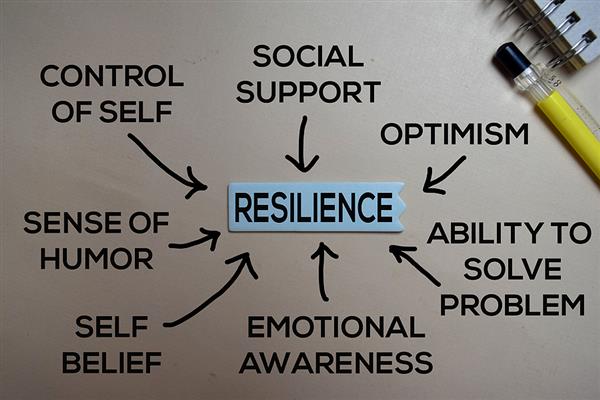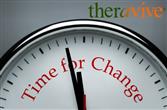January 28, 2024
by Elizabeth Pratt

Got a challenging goal you want to achieve? Getting angry may help.
Despite sometimes being seen as a negative emotion, research published in the Journal of Personality and Social Psychology has found that anger can be a powerful source of motivation for people to achieve their goals.
[More]
April 29, 2023
by Elizabeth Pratt

Having low levels of stress and a four year college degree are strongly associated with psychological resilience in women 80 and over.
Researchers from The Ohio State University found that stronger social support and higher levels of self-rated health were also helpful in building resilience.
[More]
September 18, 2020
by Tina Arnoldi

We’re capable of bouncing back from a crisis a lot faster than we might think. A new study being published in the Journal of Applied Psychology found that psychological recovery can happen even when people are still in the midst of a stressful experience. Those high in neuroticism may recover at an even faster rate because they’re better equipped to navigate stress.
[More]
School is now in full swing and children, as well as then parents, are probably experiencing increased demands on their time and their coping abilities. School involves concerns beyond those experienced by parents when they were children. Not only do children today report anxiety about school performance and acceptance, they also deal with increased violence in their place of learning.
[More]
For most of us, meeting with misfortune and struggle is a part of life. In fact, surviving adversity is often viewed as beneficial and necessary. According to one Danish Proverb: “A gem cannot be polished without friction, nor man be perfected without trials.” When a person survives life’s difficulties and demonstrates the ability to withstand all of the stress that goes along with it, he or she is described as “resilient”. The Oxford Dictionary defines resilience as “The ability of a substance or object to spring back into shape.”
[More]
In the wake of trauma many people feel lost and alone. The person they were before the event occurred seems altered. Where they once felt strong and assured they now live in fear and uncertainty. While not every person will have this experience after going through a life-altering event many will. Trauma can alter how a person perceives the world but it does not change the core aspects of who you are as a person.
[More]
November 11, 2013
by Ashley Marie

Remembrance day is a chance for us all to reflect on our heroes. This heartfelt story gives us an important reason why it is good for us to remember.
[More]
Stress is a daily reality for most of us. Mindfulness is an effective therapeutic way to help calm yourself and find peace.
[More]
September 18, 2013
by LuAnn Pierce, LCSW

Resilience is a fundamental quality within us that determines how we respond to nearly every challenge in life. Some of it is hardwired, and some is not. Here are ways to build resilience in your child.
[More]
September 9, 2013
by Cindy Marie Hosszu

Are You in the Zone?
For some people, a change of plans, scenery, or life-style is exciting, and welcome. However, for many of us, change comes with some resistance or fear. Stepping out of our comfort zone requires delving into the unknown, risking failure, and being embarrassed.
Change Can Be Bad for Your Health
In the late 60’s, psychiatrists Thomas Holmes and Richard Rahe examined the link between stressful events and illness. By examining the medical records of 5000 patients, and asking if they had experienced 43 of the most common life stress events, they found a link between the number and weight of stressful events and illness. The Holmes and Rahe Social Readjustment Rating Scales, or more commonly the Holmes and Rahe Stress Scale, lists 43 of the most common life change events that may cause illness, with a weight for stress listed in Life Change Units (LCU).
The theory was tested throughout the 70’s and has become widely accepted. Of the 43 life events, the death of a spouse was the most stressful at 100 LCU’s, followed by divorce, marital separation, jail term, death of a close family member, personal injury or illness, marriage, fired from a job, marital reconciliation, retirement, change in health of family, pregnancy, sex difficulties, gain new family member, business readjustment, change in financial state, death of a close friend, trouble with in-laws, spouse begins or stops work, beginning or end of school, change in living conditions, revision of personal habits, trouble with boss, change in work hours, change in residence, change in schools, change in recreation, change in church activities, change in social activities, change in sleeping habits, change in eating habits, vacation, Christmas, and minor violations of the law.
The shortfall of the rating scale is that it does not include major stresses that can occur such as violence or abuse in the home. It also does not account for everyday stress such as traffic, interactions with strangers, etc. Another thing to consider is that different life events have differing effects on individuals. One person’s stress may be another person’s fun. It does, however, give an idea of the amount of stress that certain life events can have on an individual in a year, to determine if stress could cause future illness. Additional studies confirm that when stress is measured holistically, the damage it can cause to health is significant. [i]
How We Deal with Change
Changes in our lives cause a loss of routine, or normalcy. For some people, in some situations, this loss requires a grieving process. The most commonly acknowledged Kubler-Ross Model of Grief states that there are five observed stages we normally go through when we face significant changes to our life. These categories will vary in time, and consistency. We may experience them in different order, and go back and forth from one to the next, or skip one completely.
Denial is the first stage in the model. Upon significant change, we lack information, and have fear of the unknown or failure. We think things such as, “this can’t be happening to me.” At this stage, we may act as though nothing is wrong or our actions may show life as usual.
Anger is the next stage. In this stage, we blame things or people outside ourselves, or ask “why is this happening to me?”
The bargaining stage is when we get actively involved in the situation. We look for a way out of the situation, or for solutions to the situation. We look for a way to take things back to normal.
Depression sets in when we realize that we cannot change the situation.
Acceptance finally occurs when we have come to terms with the situation, and can be hopeful that we can change, or can move forward and face the outcome. The new change becomes exciting.
Although these were observations by Kubler-Ross of patients that were dying, and what they went through in that process, many have used this model as a tool to understand the process of grieving. Each person will go through changes and grief differently based on their own circumstances. The point to the observations is that we tend to deal with significant changes in many of the same ways as others, and that the way we respond is often normal.
Getting help
Research has found that the best healing success comes in the form of emotional coping strategies gained through a therapist, and that avoidance is the worst thing for healing.[ii] In order to reduce the risk of illness and make the transitions in our lives go more smoothly, counseling can be integrated into the healing process. A therapist can help identify what risk may be associated with the stress of change, how much and how long we have been under stress, and if we are at risk of health problems.
For more about traumatic stress, read this.
[i] Stress and Health: Major Findings and Policy Implications Peggy A. Thoits Journal of Health and Social Behavior
Vol. 51, Extra Issue: What Do We Know? Key Findings from 50 Years of Medical Sociology (2010), pp. S41-S53
Published by: American Sociological Association Stable URL: http://www.jstor.org/stable/20798315
[ii] Worden, J. W. (2009). Grief counseling and grief therapy: A handbook for the mental health practitioner (p. 66). New York, NY: Springer Pub. Co.